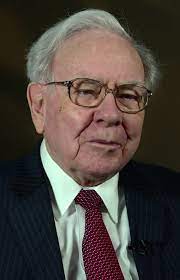Warren Buffett's Strategic Shift: A Move Away from Stocks and Towards Cash
Warren Buffett's Berkshire Hathaway drastically increased its cash reserves to nearly $277 billion, selling significant shares, including Apple. This action coincides with soaring profits and a cautious outlook on the U.S. economy. Despite decreases in net income, Buffett emphasizes prudent investment over impulsive spending.

Warren Buffett appears to have soured on stocks, allowing Berkshire Hathaway's cash reserves to swell to nearly $277 billion, and selling a significant portion of its Apple stake, even as the conglomerate posted record operating profits for the quarter. Berkshire sold around 390 million Apple shares in the second quarter, in addition to the 115 million shares sold between January and March, amidst a 23% rise in Apple's stock price. As of June 30, the conglomerate still held approximately 400 million shares worth $84.2 billion.
The rise in cash reserves, from $189 billion to $276.9 billion over three months, is largely attributed to a net sale of $75.5 billion worth of stocks. This marks the seventh consecutive quarter in which Berkshire sold more stocks than it bought. Profits from Berkshire's diverse range of businesses jumped 15% in the second quarter, reaching $11.6 billion, or about $8,073 per Class A share, up from $10.04 billion the previous year.
Nearly half of these profits were derived from underwriting and investments within Berkshire's insurance operations. Despite this, net income dropped 15% to $30.34 billion, down from $35.91 billion a year ago, reflecting volatile stock values, particularly of Apple's, affecting Berkshire's investment portfolio.
Buffett has consistently advised shareholders to overlook quarterly investment fluctuations, which can result in substantial net profit or loss variations. Berkshire tends to amass cash when it struggles to find attractive business acquisitions or individual stocks at reasonable prices.
The substantial cash reserves could signal Buffett's caution regarding the broader U.S. economy. Government data released on Friday indicated a slowdown in job growth and the highest unemployment rate since October 2021, prompting some analysts to predict multiple Federal Reserve rate cuts starting in September.
Berkshire's returns from short-term Treasuries are anticipated to drop when these rate cuts commence. Furthermore, the conglomerate showed a reduced inclination to buy back its own stock, repurchasing merely $345 million in the second quarter and none in the first three weeks of July.
"We'd love to spend it, but we won't spend it unless we think we're doing something that has very little risk and can make us a lot of money," Buffett stated during Berkshire's annual meeting on May 4, referencing the company's cash reserves. Since mid-July, Berkshire has also divested more than $3.8 billion worth of shares in Bank of America, its second-largest stock holding.
Despite the sales, Buffett continues to support Apple, appreciating the company's strong pricing power and loyal customer base. He remarked at the annual meeting that Apple is expected to remain Berkshire's largest stock investment, although selling shares was sensible due to the projected increase in the 21% federal tax rate on capital gains.
At 93, Buffett has been at the helm of Berkshire since 1965, transforming it into a sprawling conglomerate with numerous businesses including Geico car insurance, BNSF railroad, Berkshire Hathaway Energy, a real estate brokerage, and Dairy Queen. Vice Chairman Greg Abel, 62, is anticipated to eventually succeed Buffett as CEO.
(With inputs from agencies.)










